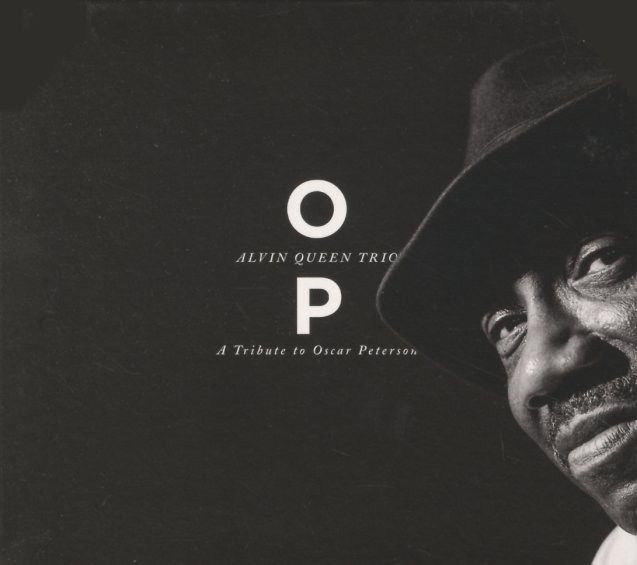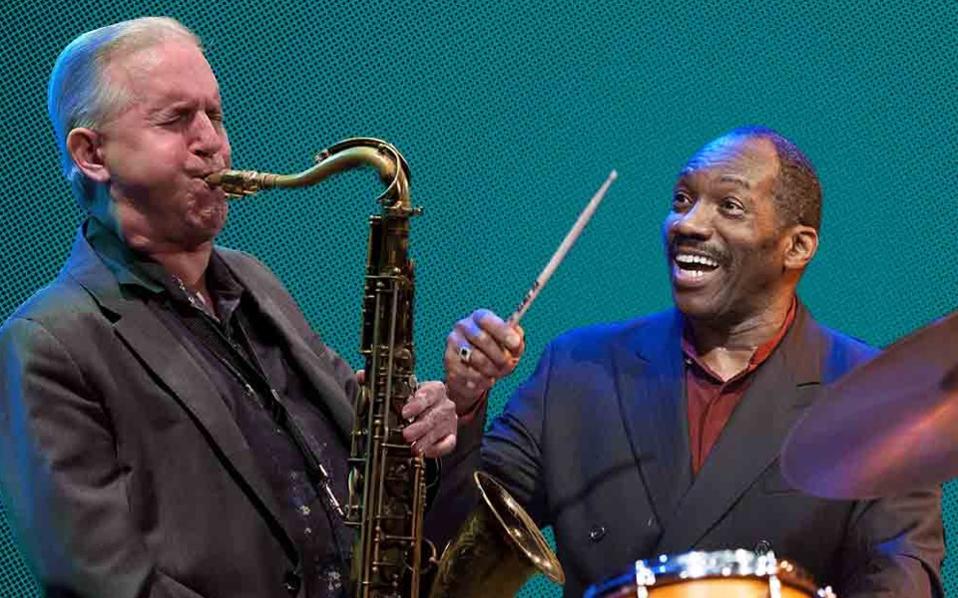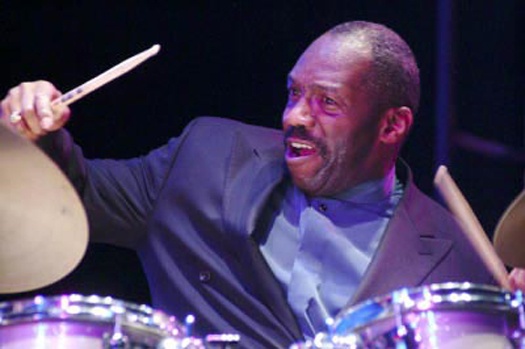Jazz interview with jazz drummer and composer Alvin Queen. An interview by email in writing.
JazzBluesNews.Space: – First let’s start with where you grew up, and what got you interested in music?
Alvin Queen: – I grew up in small city north of New York, called Mount Vernon, NY. My brother was five years older then I was and he had join the Grime school Marching band, but only played the snare drum. I wanted to be like him when I became older enough, so after reaching that certain age I decided to join the same Grime school parade band.
JBN.S: – How did your sound evolve over time? What did you do to find and develop your sound?
AQ: – I met a guy by the name of Andy Lalino who had a drum studio in the city and I started to take lesson from him, during this time period I was taken to the famous jazz club Birdland on 52nd Street and Broadway to meet most of my mentor, such as Max Roach, Art Blakey, Elvin Jones and Mel Lewis, this is how I started to develop my sound.
JBN.S: – What practice routine or exercise have you developed to maintain and improve your current musical ability especially pertaining to rhythm?
AQ: – My drum instructor at the time, Mr. Lalino had me practicing with many different books such as: Haskell W. Harr, – Ted Reed Syncopation rhythm and Louis Bellison great book.
JBN.S: – Which harmonies and harmonic patterns do you prefer now? You’re playing is very sensitive, deft, it’s smooth, and I’d say you drift more toward harmony than dissonance. There is some dissonance there, but you use it judiciously. Is that a conscious decision or again, is it just an output of what goes in?
AQ: – No, these are things you learn from the great musicians who gave me the opportunity to learn how to hear the harmonic patterns and to put them together to be able to get the dissonance. I came up at a time when they didn’t have all these microphone around and you had to learn how to play dynamically with the rest of the band and the singers.
I learn from the church and the bandstand, working with such artist as: Ruth Brown, Wild Bill Davis, Horace Silver, George Benson, Harry Sweets Edison, Eddie lockjaw Davis, Clark Terry and Oscar Peterson, just to name a few.
JBN.S: – How to prevent disparate influences from coloring what you’re doing?
AQ: – Beliving in what is right and knowing what is wrong. I came up through the creation of this music which is called Jazz. Please try to remember that this was the dancing music of the late 40’s and 50’s, everything was based off of these pattern. These are the foundation of the building, without these foundations the building will fall down
I have plan my next future produce to do a Quartet production, which I hope you will have a chance to hear that also.
JBN.S: – What do you love most about your new album 2019: <OP a tribute to Oscar Peterson>, how it was formed and what you are working on today.
AQ: – What’s so beautiful about the new album is that I really had a chance to show my appreciation to someone who I love very much and who have influence my life in have showed me the way to keep the music alive. This music, which I’ve decided to do for this album, is music that we played every night with the great Oscar Peterson Quartet while I was apart of the group.

JBN.S: – What’s the balance in music between intellect and soul?
AQ: – Duke Ellington once said “ It don’t mean a thing, if it ain’t got that swing” now you can make a judgment for yourself? My audience comes first and I have to think about entertaining them, if they can understand the music and the feeling then they can take the ride with me and it’s not a technically ride, but a soulful one.
JBN.S: – There’s a two-way relationship between audience and artist; you’re okay with giving the people what they want?
AQ: – Yes, because without the people I couldn’t survive on being a musician, please try to remember people work from 9 -5pm everyday and a lot of them never study music so it’s like speaking Chinese to someone who doesn’t understand the language, if the feeling is not right, there’s nothing to follow
JBN.S: – Please any memories from gigs, jams, open acts and studio sessions, which you’d like to share with us?
AQ: – There are many great events that I can share with you. I use to do the Monday session up in the Bronx New York on 161st and Grand Concourse, it was a club call the Salt and Pepper club, Kenny Drew Sr. brother by the name of Freddy Drew use to play Hammond B3 organ there, Lou Donaldson, George Benson, Seleno Clark, Don Pullen and many of the great musicians from the Harlem area would show up to jam with us every Monday night.
I can remember when Mr. Lalino took me down to Gretsch day night at Birdland to set in with all the great masters, from this moment on the doors open up wide for me because I was consider as a young child prodigy because of my age only 11 years old at the time 1962, from this event someone wanted to invest into a production for me and they hired Joe Newman as the music director and he contact Zoot Sims, Hank Jones for one side of the record and Harold Mabern on the second side, Art Davis was on Bass. This recording was turn over to Riverside records, but was never released.
I can remember another event that I played at, at the age of 13 years old with the George Braith Quartet at the Blue Cornet in Brooklyn, with Larry Young on piano, Ernie Farrell on Bass and George on saxophone.
I also had the opportunity to work a lot at the Key Club in Newark New Jersey with the Grant Green trio Featuring: Lonnie Smith on Hammond B3 and myself on drums
JBN.S: – How can we get young people interested in jazz when most of the standard tunes are half a century old?
AQ: – Please try to remember you have to go back and investigate on what a jazz feeling is and where did it come from. You mention that the standard tunes are half a century old, please try to remember these standard tunes originally was taken from most of the American movies and played with a jazz rhythm, but there were also the basic of each instrument applied.
JBN.S: – John Coltrane said that music was his spirit. How do you understand the spirit and the meaning of life?
AQ: – I was there in Birdland when the famous album was recorded live at Birdland with John Coltrane March 1963 and I was young but was able to sit there at Elvin Jones table with his wife and feel this unbelievable feeling that John Coltrane was able to deliver, this man worked himself from the bottom of things all the way to the top and the spiritually is shining. Younger people only look at the top of things, but they never want to research to see how this person started and where they came from.
When I came up the drummer was only allow to keep time for the other musicians, without playing all the syncopation stuff which you hear today, Roy Haynes was one of the very few who started a lot of this. It was Elvin Jones and Tony Williams, which gave the drummer at the time more freedom to play around the instrument without getting in the way of the soloist, they use to tell me to shut up from being so loud and stop dropping those bombs all over the place, this was in the early 60’s. You would have to use the bass drum on 4 beats and keep time, or they would find someone else who could do the job.
JBN.S: – If you could change one thing in the musical world and it would become a reality, what would that be?
AQ: – For all young musicians to return to the past and listen to all the musicians and their mentor’s who they are imitating, learn who they are and how they grew-up to become who they are
JBN.S: – Who do you find yourself listening to these days?
AQ: – I continue to listen to all my mentor’s who have left this earth and the people that I personally grew up with, I highly respect them and could never be on that level that’s why I have my gold hoping to reach that level one day.
JBN.S: – What is the message you choose to bring through your music?
AQ: – Peace love and happiness, but with a good feeling.
JBN.S: – Let’s take a trip with a time machine, so where and why would you really wanna go?
AQ: – There is nowhere that I want to go, because I have been there already and have scene it all, as MLK would say I been to the mountain top and I can’t go any further
JBN.S: – I have been asking you so far, now may I have a question from yourself…
AQ: – It would be wise to be able to interview more (Older) adult musicians to get the real meaning of what this music jazz is all about. While they are alive.
JBN.S: – Thank you for answers. We do that, you can find them in our section: http://jazzbluesnews.com/category/interviews/
JBN.S: – So putting that all together, how are you able to harness that now?
AQ: – There’s nothing to harness, because I’ve had a beautiful 68 years of my life to produce such wonderful music and to associate myself with the greatest musicians on this earth.
Interview by Simon Sargsyan







More Stories
Interview with Janis Siegel of The Manhattan Transfer: Jazz, being a more refined, interpreted form of music
CD review: George Benson – Dreams Do Come True: When George Benson Meets Robert Farnon – 2024: Video, CD cover
The band was tight as ever. The Warren Haynes Band cuts loose: Video, Photos